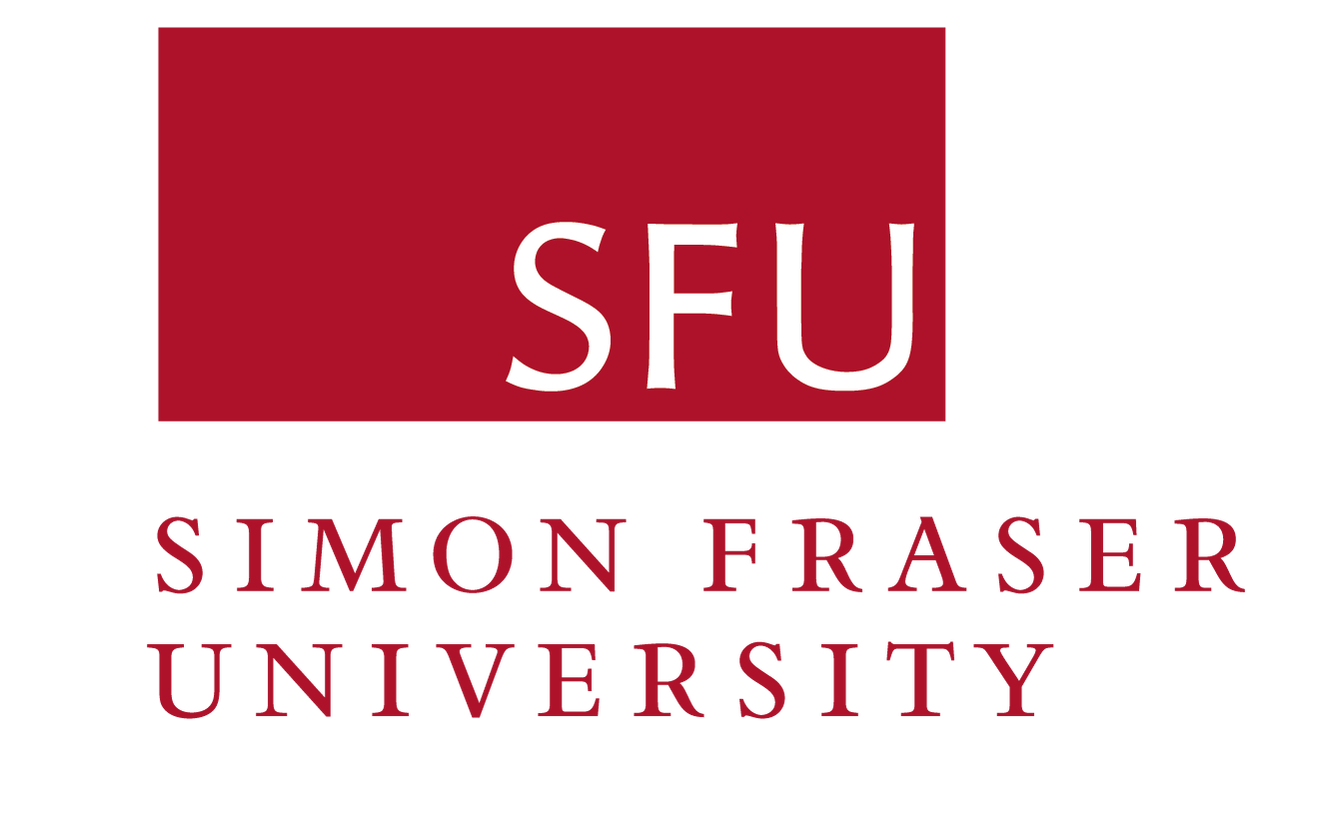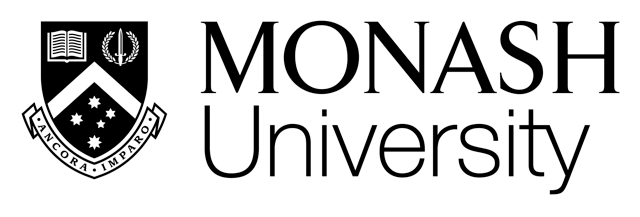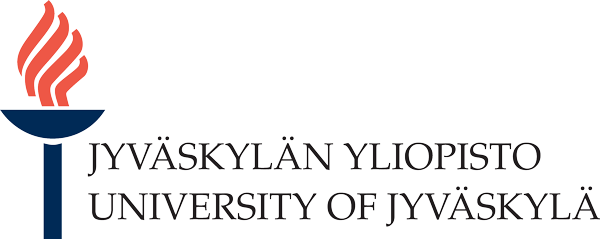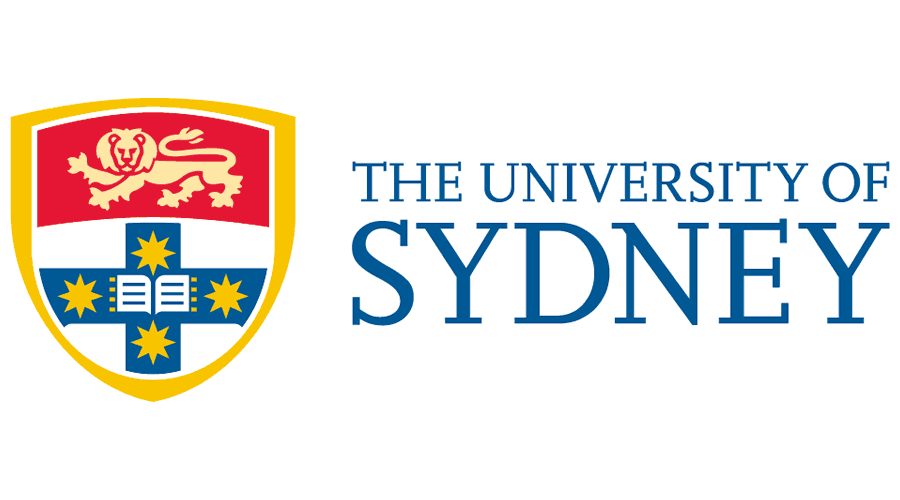Co-directeurs
|
Lisa Shapiro
Lisa Shapiro is the PI of this project. She is Professor of Philosophy at Simon Fraser University, translator and editor of The Correspondence of Princess Elisabeth of Bohemia and René Descartes (Chicago 2007), co-editor (with Martin Pickavé) of Emotion and Cognitive Life in Medieval and Early Modern Philosophy (OUP 2012), and editor of Pleasure: A History (OUP 2018). Her research has examined the philosophy Descartes and Spinoza through their accounts of the passions, and has recovered the philosophical work early modern women. She is currently working on a monograph about how 17th century philosophers develop Cartesian philosophy of mind in their arguments for women’s education. Corey Dyck
Corey W. Dyck specializes in the history of 18th century German philosophy. His research interests include topics in metaphysics and philosophy of mind in the period, particularly with reference to Kant's philosophy, but extend to the works of both minor and marginalized figures in the period, including women and Jewish thinkers. His publications related to the ENN project include numerous book chapters, a recent translation of a work by Dorothea Erxleben, and a forthcoming anthology (with OUP) entitled Women and Philosophy in Eighteenth-Century Germany. Marie-Frédérique Pellegrin
Marie-Frédérique Pellegrin is a senior lecturer at the Faculty of Philosophy at the University of Lyon3. A specialist in Cartesianism, she works on the feminine and feminist posterity of this philosophy. She also contributes to the exhumation of early modern philosophical figures such as Marie de Gournay. |
Jacqueline Broad
Jacqueline Broad is an Associate Professor of Philosophy at Monash University, Melbourne. Her main area of research is women's philosophy of the seventeenth and eighteenth centuries. She has written on women's social and political thought, their theories of virtue, and conceptions of the self, as well as connections between feminism and Cartesianism in the early modern period. She is currently working on a project on the philosophical foundations of women’s rights prior to the enlightenment. Andrew Janiak
Martina Reuter
Martina Reuter holds a PhD in philosophy (University of Helsinki, 2000) and is senior lecturer in gender studies at the University of Jyväskylä. She is specialized in the history of feminist thought, with particular focus on the early modern and enlightenment periods. |
|
Collaborateurs
L'un de nos objectifs est d'étendre notre réseau. Si vous souhaitez vous impliquer, veuillez nous contacter via le formulaire de la page d'accueil.
A-EDonald Ainslie
Donald Ainslie is a Professor of Philosophy at the University of Toronto. While his research has thus far focused on canonical figures, primarily David Hume, he is looking forward to the opportunity of broadening his understanding of the broader early modern period, especially the work of Mary Astell and Catharine Trotter Cockburn. He is the author of Hume’s True Scepticism (OUP, 2015) and is currently working on Hume’s System of Ethics (under contract with OUP). Carolina Araújo
My main research within the New Narratives Project is about Women Philosophers in Socratic schools in the 4th century BCE. I am also interested in methodological issues involved in reintroducing philosophers without extant works into the History of Philosophy. Andrew Arlig
I work primarily on topics in medieval metaphysics and mostly with authors working in the European Latin tradition. I also have interests in the vernacular European contemplative tradition and Arabic philosophy and theology. I am currently working with team headed by Christia Mercer on a new translation and commentary of Anne Conway's Principles. Sandrine Berges
Sandrine Bergès is associate professor in philosophy at Bilkent University in Ankara. Her publications include: Sophie de Grouchy's Letters on Sympathy (with Eric Schliesser), The Wollstonecraftian Mind (with Eileen Hunt Botting and Alan Coffee), Women and Autonomy (with Alberto Siani)The Social and Political Philosophy of Mary Wollstonecraft (with Alan Coffee) A Feminist Perspective on Virtue Ethics and The Routledge Companion to Wollstonecraft’s A Vindication of the Rights of Woman. I work on women's moral and political philosophy. I've written about women doing virtue ethics in the 12th, 15th, 17th and 18th century; Mary Wollstonecraft; and women's political thought during the French Revolution. I'm now looking at women's philosophical writings on the home from Antiquity to the 20th century. Myriam Bernier
Mes recherches porte sur la question du problème philosophique de l'athée vertueux : Est-il possible pour un athée d'être vertueux, c'est-à-dire de dépasser son égoïsme pour se préoccuper de l'intérêt général, ou, n'ayant aucune crainte d'une punition après la mort, ne va-t-il pas faire de la satisfaction de ses plaisirs son but suprême? J'étudie comment cette question est née au XVIIème siècle en France, via l'apparition des libertins qui sont les premiers à tenter de détacher la morale de la religion : les apologistes, leur ont opposés pour défendre au contraire l'absolue nécessité de la religion pour parvenir à la vertu. Je veux ensuite montrer comment cette question qui donc était davantage abordée comme un problème anthropologique au XVIIe (la question est celle de la nature humaine : l'homme peut-il faire le bien sans la grâce?) est devenue politique au XVIIIe (la question devenant : les citoyens ont-ils besoin d'une religion pour dépasser leur égoïsme et penser à l'intérêt général, donc pour bien voter?) Dans mes recherches, les femmes philosophes ont une grande importance. D'abord parce qu'en tant que femmes, elles sont extrêmement concernées par ces débats : l'Église régit encore plus la conduite des femmes que celles des hommes, et surtout libertins comme apologistes ne définissent pas la vertu attendue des femmes de la même manière que celle des hommes. J'étudie donc tout particulièrement Ninon de Lenclos, dont il reste très peu d'écrits mais autour de laquelle s'est cristallisé un véritable mythe : celui d'une femme se revendiquant d'une morale d'homme, celui d'une femme prônant la même morale pour les deux sexes. Ninon de Lenclos ne défend donc pas seulement la possibilité pour un athée d'être vertueux, elle défend également que cette vertu soit la même pour les femmes et les hommes. Je m'intéresse également à d'autres femmes qui ont joué un rôle dans ces débats autour de l'athée vertueux, comme Madame Deshoulières. Par ailleurs, j'ai écrit trois articles sur trois femmes philosophes (« Jacqueline Pascal, le courage de la vérité », « Madame Guyon, la liberté dans l'esclavage », « Isabelle de Charrière, l'exigence morale dans le scepticisme ») pour une anthologie de textes de femmes philosophes dirigée par Anne-Lise Rey à paraître bientôt : Anne-Lise REY (dir.), Philosophies : féminin pluriel. Anthologie des femmes philosophes, Classiques Garnier, (à paraître). Mathilde Bombart
A former student of the Ecole Normale Supérieure, I am associate professor at the University of Lyon. I specialize in the study of French 17th-Century Literature, with a focus on the history of polemical writings, especially in their relationship to readers. My latest research aims at introducing more book history and material bibliography in the study of literary history, with two main fields: collections and sammelband of “mazarinades”, pamphlets produced during the political crisis of the Fronde (1649-1652); and “keyed books” or “à clef” books, a type of book that allows to study how editorial paratexts attempts to shape the understanding of texts and how readers react to it (monograph under review for publication : Le Secret de l’Oeuvre. Lecture et Ecriture à Clef dans la France de l’Ancien Régime). This research has led me to study the place given to women in the narration of literary history, with a focus on the category of "precieuse" as it has been shaped in the 19th c. to talk about female thinkers and authors. Personal page Julia Borcherding
Deborah Boyle
Deborah Boyle is currently working on preparing a modern, abridged version of Cavendish's Philosophical Letters to make this important work more accessible for use in the classroom. She is also writing Mary Shepherd: A Guide for a new series by Oxford University Press. Deborah Brown
Professor Brown is a specialist in early modern philosophy, particularly, the work of René Descartes. As part of this partnership project, she is working on the reception of Cartesian metaphysics and moral psychology among feminists of the early modern period who used Descartes’ emphasis on the rational will, autonomy and self-sufficiency, and the fundamental recognition of moral equality built into Cartesian ethics, to ground arguments for women’s moral equality with men. Early modern feminists to be examined include inter alia Mary Astell, Sophia and Poulaine de la Barre. She is a collaborator with Jacqueline Broad and Marguerite Deslauriers on an (2019-2021) Australian Research Council Discovery project, The Philosophical Foundations of Women’s Rights: A New History, 1600-1750. Stefanie Buchenau
Colin Chamberlain
Skye Cleary
Skye C. Cleary PhD MBA is author of Existentialism and Romantic Love (Palgrave Macmillan 2015) and co-editor of How to Live a Good Life (Vintage 2020). She is working on a book about women philosophers and authenticity. She teaches at Columbia University and Barnard College. Alan Coffee
David Cunning
Claude Duflo
Sabrina Ebbersmeyer
Scott Edgar
Kelin Emmett
Claire Etchegaray
Vertical Divider
|
F-KUnn Falkeid
Unn Falkeid is Professor of History of Ideas at University of Oslo. She has published broadly on early modern intellectual history (1300-1700). Her research focuses especially on Renaissance humanism, book history, late medieval political thought, and women's contribution to early modern history of knowledge. Lynne Farrington
Allauren Samantha Forbes
Allauren Samantha Forbes is an Assistant Professor in the Department of Philosophy and is cross-appointed to Gender and Social Justice at McMaster University. Her research focuses on socio-politically transformative relations like marriage, friendship, and custom in the writings of women philosophers from the 16th to 19th centuries. Yara Frateschi
I am a professor of Ethics and Political Philosophy at the State University of Campinas and one of the editors of the Blog Mulheres na Filosofia. Having dedicated my last ten years to the topic of education for the formation of moral and political judgment - and its relationship with citizenship and freedom - in the philosophical works of Hannah Arendt and Seyla Benhabib, I now intend to investigate the same theme in the work of Women Philosophers in the 17h and 18h centuries. Isabelle Gamier
Moira Gatens
Kristin Gjesdal
Kristin Gjsedal is Professor of Philosophy at Temple University. She works in the history of eighteenth and nineteenth century philosophy, philosophy of art, phenomenology, and philosophy of interpretation. She is the author of three monographs: Gadamer and the Legacy of German Idealism (CUP), Herder’s Hermeneutics (CUP), and The Drama of History: Ibsen, Hegel, Nietzsche (OUP). She is the editor and co-editor of seven volumes covering aesthetics, nineteenth-century philosophy, hermeneutics, and other topics. Her work in philosophy of interpretation and nineteenth-century philosophy has led her to take an interest in women philosophers in the nineteenth century. With Dalia Nassar (Sydney), she is co-editing two forthcoming volumes: Women Philosophers in the Long Nineteenth Century: The German Tradition (OUP, 2021) and The Oxford Handbook of Nineteenth-Century Women Philosophers in the German Tradition (2022). Kristin Gjsedal is currently working on a book-length project covering the contributions of women philosophers in the lineage from romanticism to phenomenology. Updates on her work can be found on her department webpage or her website. Robert Gooding-Williams
Karen Green
Amber Griffieon
Dr. Amber L. Griffioen works primarily in the areas of philosophy of religion, history of philosophy, social philosophy, and philosophy of sport. In the history of philosophy, she has focused primarily on philosophical mysticism in the Christian and Islamic traditions, in addition to undertaking various pedagogical and disciplinary endeavors aimed at the pluralization of the Western philosophical canon. Current historical research includes work on embodied cognition, material textuality, and the Dominican sister books; mysticism, transformation, and political resistance; and the influence of Catholic mystagogy on Descartes' Meditations. Phillippe Hamou
Dai Heide
Sara Heinämaa
Academy professor Sara Heinämaa's research project Marginalization and Experience: Phenomenological Analyses of Normality and Abnormality (MEPA) provides a phenomenological account of experiential normality and normativity for the purposes of theorizing social marginalization. Contemporary phenomenology of embodiment and intersubjectivity offers excellent starting points for such an account. By systematically developing its conceptual and methodological arsenal, the project builds a new theoretical framework that allows us to understand how experiences of normality and abnormality function in processes of social exclusion/inclusion and marginalization/valorization. Sandy Hervieux
Thierry Hoquet
Sarah Hutton
Chike Jeffers
Michael Joyce
Jari Kaukua
Peter King
Julie Klein
Vertical Divider
|
L-PTessa Lacerda
Mon projet de recherche actuel, «Dialogues épistolaires: une réflexion sur le canon philosophique», consiste à réfléchir sur le canon philosophique et l'inclusion de figures féminines dans l'Histoire de la Philosophie à partir de l'analyse de la correspondance entre Sophie Charlotte, reine de Prusse, et Leibniz . Si la plupart des lettres écrites par Sophie Charlotte ont été brûlées au moment de sa mort, il nous reste encore quelques courtes lettres, en plus des longues réponses de Leibniz. Nous voudrions nous consacrer à l'étude de cette correspondance pour examiner si, outre le rôle incontestable de promotrice de la philosophie et de la science, on peut dire que Sophie Charlotte est aussi l'auteur d'une réflexion philosophique. Vili Lahteenmaki
Vili Lähteenmäki is an Academy of Finland Research Fellow in the University of Helsinki. He works primarily on early modern metaphysics and philosophy of mind, in particular on theories of consciousness and selfhood. Currently he is the PI of an Academy of Finland funded project Thick Subjects: A Reconsideration of Early Modern Views of the Self (2020-24) which examines an early modern line of thinking in which a simple subject of thought increases into an embodied subject fit for emotions and sensations and ultimately for socially embedded moral agency by integrating thus far largely neglected early modern philosophers as philosophers of the self. Sandra Lapointe
Marcy Lascano
Marcy P. Lascano is Professor of philosophy at the University of Kansas. She specializes in early modern philosophy and has publications on Margaret Cavendish, Anne Conway, Mary Astell, Damaris Masham, and Émilie du Châtelet. She is currently working on a book on Margaret Cavendish and Anne Conway and is producing an online open access text of Margaret Cavendish’s 1663 edition of Philosophical and Physical Opinions. Lia Levy
Antonia Lolordo
Antonia LoLordo is Professor of Philosophy at the University of Virginia. She is the editor of Mary Shepherd’s Essays on the Perception of an External Universe (Oxford, 2020) and the author ofLocke’s Moral Man (Oxford, 2012) and Pierre Gassendi and the Birth of Early Modern Philosophy. With Aaron Garrett, she founded and edits the Journal of Modern Philosophy (jmphil.org). Claire Maccumhaill
Samantha Matherne
Samantha Matherne is an Assistant Professor in the Department of Philosophy at Harvard University. She specializes in Kant, Neo-Kantianism, Phenomenology, and Aesthetics. She is the author of Cassirer (forthcoming) for the Routledge Philosophers Series. She is currently writing a book about Kant’s theory of imagination and she is exploring the work of the phenomenologist, Edith Landmann-Kalischer. Renato Matoso
Renato Matoso is Professor of Philosophy at the Pontifical Catholic University of Rio de Janeiro. Renato works primarily with Ancient Philosophy and Religious Cognition. He has done research and published in both Plato and Aristotle as well as in less known figures such as the anonymous commentator of Plato’s Theatetus and other middle-platonists. Recently, Renato received the ACT-Fellowship from the John Templeton Foundation, and he is now doing research on themes related to religious cognition, which gives him the opportunity to work with a very wide range of narratives in the history of philosophy. Liz Milewicz
As head of Duke University Libraries’ Digital Scholarship & Publishing Services department, Liz Milewicz advises and leads initiatives and services that encourage the creation, use, and dissemination of scholarly materials in a range of media. Currently she serves as co-director of Project Vox (https://projectvox.library.duke.edu ), an open educational resource on early modern women philosophers that is collaboratively developed by Duke Libraries and the Duke Department of Philosophy and that serves as a platform for students, faculty, and staff to develop hands-on experience in digital publishing. Lydia Moland
Lydia Moland is currently writing a biography of the American abolitionist Lydia Maria Child that will emphasize the philosophical foundations of Child's activism. Together with Alison Stone, she is co-editing The Oxford Handbook of American and British Women Philosophers in the Nineteenth Century. Her previous research focuses on Hegel and on German Idealism. Turner Nevitt
Calvin Normore
Lydia Patton
Lydia Patton works in philosophy of science, history of philosophy of science, and history of philosophy. In her academic work, she has translated and done research on the work of Rosa Luxemburg, Émilie du Châtelet, and Jewish philosophers Hermann Cohen and Ernst Cassirer. She has hosted panels studying disability with her colleague Ashley Shew. She is a member of the Society for Advancement of Science in Africa (SASA) and the International Association for Science and Cultural Diversity (IASCUD). In teaching, she has strengthened the modern philosophy curriculum in her department's undergraduate major by revising syllabi to study worldwide traditions of philosophy, including Indian, African, and Latin American philosophy. Katarina Peixoto
Katarina Peixotois Posdoctoral fellow. Universidade Estadual do Rio de Janeiro (http://www.uerj.br/idiomas.php#gb), Rio de Janeiro, Brazil. (Research project: The problem of singular terms in The Port-Royal Logic). She is also leading a research project on Elisabeth of Bohemia's Thought (Intentionality and responsibility in Elisabeth of Bohemia's Thought) (Both projects with grants from The National Council for Research and Development – CNPq). Katarina Peixoto works mainly with Early Modern Philosophy (and Early Modern Philosophy of logic); is one of the organizers of the I International Conference Women in The History of Philosophy, which were held at UERJ, 17-20th Juin (https://mulheresfilosofiamoderna.wordpress.com Facebook: https://www.facebook.com/ConferenceWomenModernPhilosophyBrazilUERJ/?modal=admin_todo_tour). Alison Peterman
Ulysses Pinheiro
Ulysses Pinheiro is Professor of Philosophy at the Federal University of Rio de Janeiro. His research within the New Narratives Project is divided into two fronts articulated with each other, both relating to gender and race studies. Firstly, it will investigate the conditions for the production and for the silencing of philosophical discourses elaborated by marginalized groups in Brazilian colonial period, by taking Rosa Egipcíaca's (affranchised slave, 1719 - 1778) mystical thought as a case study. Secondly, it will investigate the changes that these conditions underwent in post-colonial modernity, studying the trajectory of Mário de Andrade (Afro-Latin American writer and folklore scholar, 1893-1945, recently designated by researchers as bi- or homosexual), particularly his brief career as a professor of Philosophy of Art at the University of Federal District in the 1930s. Pedro Pricladnitzky
Nastassja Pugliese
Stéphane Pujol
Stéphane Pujol is University Professor at the University of Toulouse - Jean Jaurès. A specialist in the eighteenth century and in the literature of ideas, he is notably the author of a summary work on the genre of dialogue (Le dialogue d'idées au dix-huitième siècle, Oxford, Voltaire Foundation, 2005) and a study on Le Neveu de Rameau by Diderot (Le philosophe et l'original, PURH, 2016). He has also co-edited a book devoted to the philosophy of Voltaire (Voltaire philosophe, regards croisés, C18, Ferney Voltaire, 2017). His latest book to be published is entitled Morale et Science des mœurs dans l'Encyclopédie (Champion 2021 ed.). Vertical Divider
|
R-ZClément Raymond
Andrea Reichenberger
Ana Rieger Schmidt
Associate Professor at the Philosophy Department of the Federal University of Rio Grande do Sul, Brazil. My current research focuses on the philosophical import of medieval writer Christine de Pizan (1363 - c. 1430), as well as her sources, her intellectual context and the reception of her thought. Melvin Rogers
Marleen Rozemond
My life long research focuses on the question how early modern philosophers approached the material/immaterial divide. This work currently includes a project on these issues in Margaret Cavendish and Anne Conway. Paola Rumore
Paola Rumore is Associate Professor for the History of Modern Philosophy at the University of Turin. She works primarily in the history of 18th-century German philosophy, with a special focus on the Kantian and pre-Kantian debate on metaphysics, psychology, and materialism. She is the author of L’ordine delle idee. La genesi del concetto di ‘rappresentazione’ in Kant attraverso le sue fonti wolffiane (1747-1787), Firenze 2007; Materia cogitans. L’Aufklärung di fronte al materialismo, Hildesheim 2013; Idea, «Lessico della filosofia», Bologna 2017. She has published the critical edition and the Italian translation of Georg Friedrich Meier's Beyträge zu der Lehre von den Vorurtheilen des menschlichen Geschlechts, Pisa 2005 (with N. Hinske and H.P. Delfosse), the volume Kant und die Aufklärung, Hildesheim 2011 (with L. Cataldi Madonna), and the special issue of the international Journal «Quaestio», Another 18th-century German Philosophy? Rethinking German Enlightenment, (XVI, 2016, with E. Pasini). She is currently working on a monograph on the debate concerning the immortality of the soul in 18th-century Germany. Charlotte Sabourin
Charlotte Sabourin's research explores the contribution of critical feminist perspectives to the history of philosophy, with a special focus on the Enlightenment period. She is particularly interested in critical appropriations of Immanuel Kant’s ideas, in particular in Mary Wollstonecraft’s, Theodor von Hippel's and Madame de Staël’s works. She is also interested in 17th century French feminist philosophers such as Gabrielle Suchon and François Poulain de la Barre Eric Schliesser
Claire Schwartz
Gisele Secco
My research focuses on Nísia Floresta (1810-1885), especially her first work (published in 1822), a translation of one of the so-called Sophia's pamphlets. This book is still considered by many as a version of Wollstonecraft's A Vindication of the Rights of Women. In analyzing the translation and its reverberations in the Opúsculo humanitário, I intend to show how Floresta's philosophy of education is at the crossroads between the tradition of logical feminism and the rhetorical tradition of the women worthies. I am also researching on Ayda Ignez Arruda, a Brazilian women logician and philosopher of logic. Mitieli Seixas
Mitieli Seixas is Assistant Professor at the Philosophy Department (Universidade Federal de Santa Maria/UFSM). She received a PhD in Philosophy from Universidade Federal do Rio Grande do Sul/UFRGS in 2016). As part of her doctoral work on Kant’s theoretical philosophy, she visited University of California – Berkeley. She has also been a visiting researcher at the Université Catholique de Louvain, the Begische Universität Wuppertal and at the Université du Luxembourg. She is currently head of The Pedagogical Residency, which prepares high school teachers to teach philosophy. She is interested in topics related to the history of modern philosophy, especially Émilie du Châtelet's view of the experience as a source of knowledge. I have also experience in projects intersecting cinema, women studies and logic teaching. Hasana Sharp
Hasana Sharp earned her PhD from the Pennsylvania State University (2005) and a diplôme (pensionnaire scientifique étranger) from the Ecole Normale Supérieure des Lettres et Sciences Humaines (2004). Her research is in the history of political philosophy and feminist theory with a focus on Spinoza. Her 2011 book examines the implications of Spinoza's denial of human exceptionalism for ethics and politics, with consideration of arguments in feminist thought and critical race theory. She is currently undertaking a SSHRC-funded research project on Spinoza and Servitude. She interested in how his analyses of human servitude, bondage, and slavery, central to both his ethics and politics, can be understood in relationship to other models. In particular, how do Spinoza's philosophical and political conceptions of servitude interact with the notions of his contemporaries objecting to the enslavement of African and Indigenous peoples or to the domination of women? Alison Simmons
Alison Simmons works primarily on early modern theories of mind. Although her research has focused on Descartes and Malebranche, she is currently working on related themes in Conway and Cavendish. Alison Stone
Emily Thomas
Emily Thomas is an Associate Professor of Philosophy at Durham. She mostly works on the history of Anglo-American metaphysics, from the seventeenth to early twentieth centuries. She is the author of Absolute Time: Rifts in Early Modern British Metaphysics (2018) and The Meaning of Travel: Philosophers Abroad (2020). She is also the editor of Early Modern Women on Metaphysics (2018). Christina Van Dyke
Anik Waldow
Anik Waldow is Associate Professor in the Philosophy Department at the University of Sydney. She mainly works in early modern philosophy and has published articles on the moral and cognitive function of sympathy, early modern theories of personal identity and the role of affect in the formation of the self. More recently, she has started to investigate the role of sentiment in French 18th century theories of cognition and intersubjective processes of knowledge acquisition. One of the aims of this project is to understand better in which way less known French writers contributed to the Scottish debate on sympathy and affective communication. Rachael Wiseman
With Dr Clare Mac Cumhaill, I direct www.womeninparenthesis.co.uk, which focuses on the c20th female philosophers, G. E. M. Anscombe, Philippa Foot, Mary Midgley and Iris Murdoch. We are using their story (and their philosophy) to challenge dominant male-centric narratives in the history of analytic philosophy. Ana Miriam Wuensch
A professor of philosophy at the University of Brasilia, Dr Wuensch's research is currently focused on thinking about the human condition with women and from the perspective of women authors unthinkable by Western Philosophy is a challenge to new narratives. Christine de Pizan is just one of many cases. In this sense, the scope of our research seeks to articulate two perspectives: a consideration of the natal being that we are (Hannah Arendt and María Zambrano) on the one hand, and the lived experience, one's own and that of others, localized and temporal, on the other hand. Thus, one step in this direction is to examine the contributions of 19th-century Brazilian literati such as Nísia Floresta and Maria Firmina dos Reis, and 20th-century scientists like as Helena Antipoff and Nise da Silveira, to articulate the experience lived with the thought life. Audrey Yap
|
Header image: Cité des Dames by Christine de Pisan












